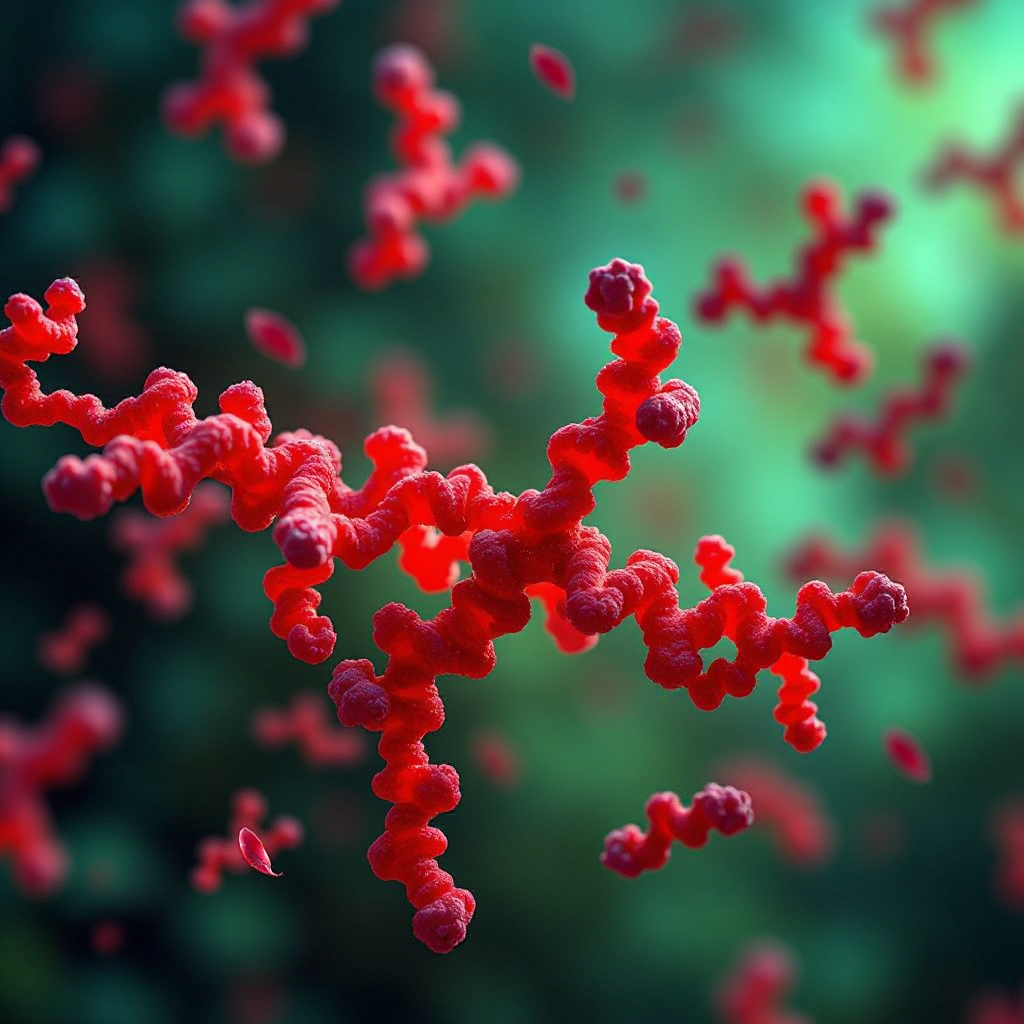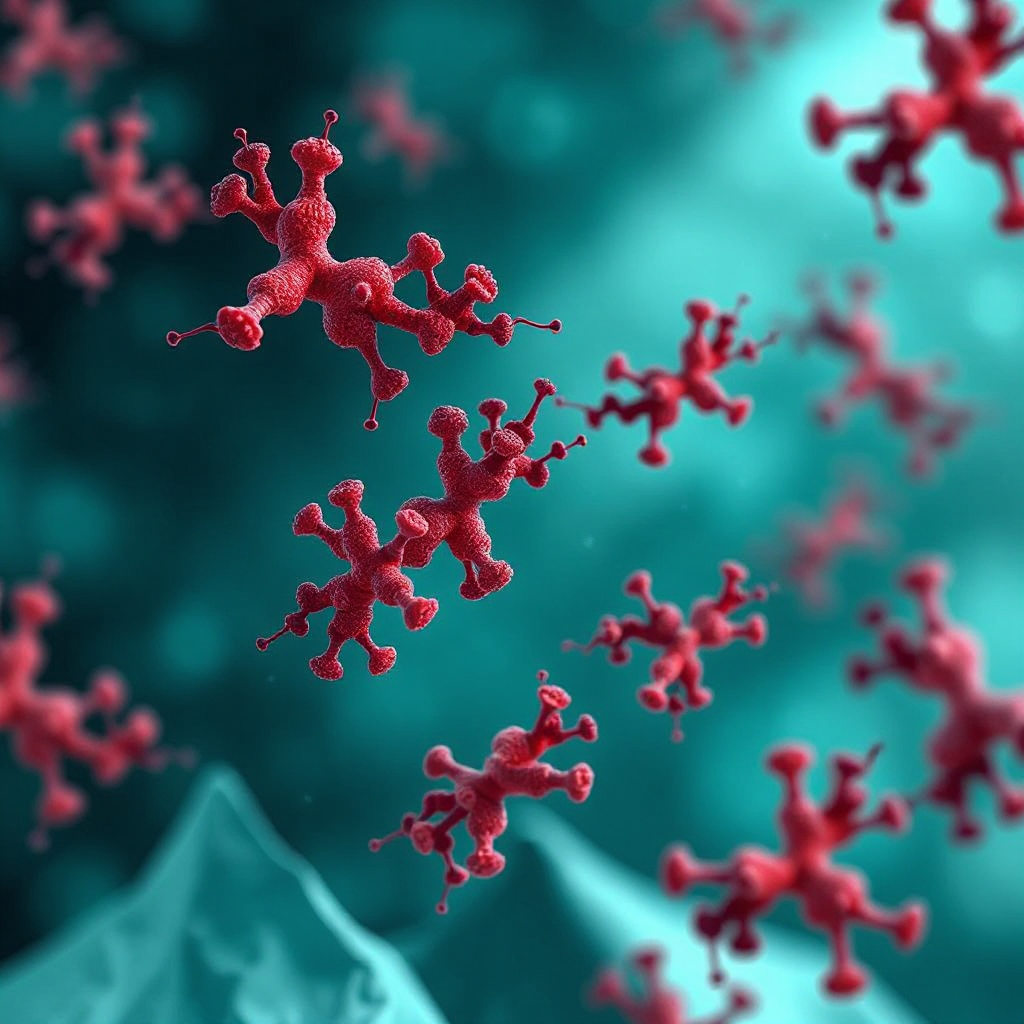What Are Monoclonal Antibodies and Their Functions

Monoclonal antibodies are revolutionizing healthcare by offering targeted solutions for complex diseases. These laboratory-engineered proteins are designed to bind to specific antigens, making them highly effective in both treatment and diagnosis. Over the past decade, their role in medicine has expanded significantly. Today, more than 100 monoclonal antibodies have received FDA approval, and they account for 9 of the top 20 therapeutic products globally. Hospitals, which represent 41% of their usage, rely on these antibodies for precision therapies. With sales exceeding $75 billion annually, monoclonal antibodies are a cornerstone of modern medicine.
Key Takeaways
Monoclonal antibodies are special proteins made to target certain antigens. They are useful for treating diseases like cancer and immune system problems.
These antibodies give accurate treatments and have fewer side effects than older methods. They can also work faster to help patients feel better.
The hybridoma method is important for making monoclonal antibodies. It helps create very specific antibodies for many medical uses.
Monoclonal antibodies are now being used for new problems, like infections and brain-related illnesses. This shows how useful they are in medicine today.
Even though they are helpful, monoclonal antibodies can cost a lot and might cause side effects. Scientists are working to make them cheaper and easier to use.
Understanding Monoclonal Antibodies
Monoclonal vs. Polyclonal Antibodies
When it comes to antibodies, you might wonder about the difference between monoclonal and polyclonal antibodies. These two types vary significantly in their structure, production, and applications. Monoclonal antibodies are produced by identical B cells derived from a single parent cell. This process results in antibodies that are uniform and highly specific to one epitope of an antigen. On the other hand, polyclonal antibodies are created by multiple B cell clones, allowing them to recognize and bind to various epitopes on the same antigen.
Here’s a quick comparison to help you understand better:
Feature | Monoclonal Antibodies | Polyclonal Antibodies |
|---|---|---|
Source | Derived from a single cell clone | Mixture from multiple B cell clones |
Specificity | Highly specific to a single epitope | Diverse binding specificities to multiple epitopes |
Production | Homogeneous and predictable | Heterogeneous and variable |
Applications | Targeted therapies and diagnostics | Versatile in research applications |
Monoclonal antibodies are ideal for targeted therapies because of their precision. Polyclonal antibodies, with their broader binding capabilities, are often used in research and diagnostic applications.
Importance of Monoclonal Antibodies in Medicine
Monoclonal antibodies have transformed modern medicine. Their ability to target specific antigens makes them invaluable in treating and diagnosing various diseases. For example, trastuzumab is used to treat HER2-positive breast cancer, while rituximab is effective against certain types of lymphoma and leukemia. In infectious diseases, monoclonal antibodies like palivizumab help prevent respiratory syncytial virus (RSV) infections. They have also played a crucial role in combating COVID-19 by neutralizing the virus.
In autoimmune disorders, monoclonal antibodies such as adalimumab and infliximab have provided relief for conditions like rheumatoid arthritis, Crohn's disease, and psoriasis. Their precision reduces side effects compared to traditional treatments, making them a safer option for patients.
By offering targeted solutions, monoclonal antibodies have become a cornerstone of therapies for cancer, autoimmune disorders, and infectious diseases. Their versatility and effectiveness continue to shape the future of healthcare.
How Monoclonal Antibodies Are Produced

The Hybridoma Technique
The hybridoma technique is a groundbreaking method that revolutionized the production of monoclonal antibodies. It all began in the 1960s when César Milstein started exploring antibody diversity at the Medical Research Council Laboratory of Molecular Biology. By 1973, Dick Cotton demonstrated that fusing two myeloma cell lines could create hybrid cells capable of producing antibodies. A year later, Georges Köhler joined Milstein’s lab, and together they developed the hybridoma technique. This involved fusing myeloma cells with spleen cells from immunized mice. The first successful hybridoma combined the myeloma cell line P3-X63-Ag8 with spleen cells, leading to the production of monoclonal antibodies. Their work earned them the Nobel Prize in 1984.
This technique allows you to produce antibodies that are highly specific to a single antigen. It remains a cornerstone in the field of biotechnology, enabling the development of therapies for diseases like cancer and autoimmune disorders.
Modern Production Methods
Modern methods for producing monoclonal antibodies have advanced significantly, offering greater precision and efficiency. These methods focus on tailoring antibodies to meet specific therapeutic needs. For example, scientists can now engineer antibodies to improve their pharmacokinetics, ensuring they stay in the body longer and work more effectively. Emerging technologies have also introduced bispecific antibodies, which can target two antigens simultaneously, and antibody-drug conjugates, which deliver drugs directly to diseased cells.
Personalized medicine has further enhanced the potential of monoclonal antibodies. By tailoring treatments to individual patient characteristics, you can achieve better outcomes with fewer side effects. Additionally, the growing demand for home-based therapies has led to the development of formulations that allow patients to administer treatments themselves, improving convenience and accessibility.
These advancements highlight the versatility and innovation in monoclonal antibody production, ensuring they remain at the forefront of modern medicine.
Functions of Monoclonal Antibodies
Targeting Specific Antigens
Monoclonal antibodies excel at targeting specific antigens, making them a powerful tool in modern medicine. These antigens are unique proteins found on the surface of cells, including harmful ones like cancer cells. Scientists design monoclonal antibodies in the lab to recognize and bind to these antigens with precision. Once administered, they attach to their target, marking the cells for destruction by your immune system.
Here’s how monoclonal antibodies work:
They identify antigens unique to diseased cells, such as cancer cells or pathogens.
After binding to the antigen, they act as a signal for your immune system to attack.
Some monoclonal antibodies are modified to carry drugs or radioactive particles, enhancing their ability to destroy harmful cells.
You might encounter different types of monoclonal antibodies. For example, "naked" antibodies work alone, while "bispecific" antibodies target two antigens simultaneously. These variations allow for tailored treatments, improving effectiveness and reducing side effects.
Enhancing Immune Responses
Monoclonal antibodies also boost your immune system's ability to fight diseases. They label antigens, making it easier for immune cells to recognize and destroy harmful targets. Additionally, they can interfere with cellular signaling pathways, disrupting processes that allow diseases to progress.
Another remarkable feature is their ability to deliver therapeutic payloads directly to diseased cells. This minimizes damage to healthy tissues, ensuring a more focused treatment. For instance, in cancer therapy, monoclonal antibodies can carry chemotherapy drugs directly to tumors, sparing surrounding healthy cells.
By enhancing immune responses, monoclonal antibodies provide a dual benefit: they strengthen your body's natural defenses while delivering targeted treatments. This combination makes them a cornerstone of precision medicine.
Applications of Monoclonal Antibodies

Cancer Treatments
Monoclonal antibodies have transformed cancer treatments by offering targeted therapies that attack cancer cells while sparing healthy tissues. These therapies work by identifying specific proteins on cancer cells and binding to them, which disrupts their growth or marks them for destruction by your immune system.
Several monoclonal antibodies have shown remarkable success in treating various cancers:
Rituximab (Rituxan) binds to CD antigens on B lymphocytes, making it effective for non-Hodgkin lymphoma.
Trastuzumab (Herceptin) targets the HER2 protein, commonly found in breast and stomach cancers.
Brentuximab vedotin (Adcetris) combines an antibody with a drug to target CD30, a protein in certain lymphomas.
Ado-trastuzumab emtansine (Kadcyla) delivers chemotherapy directly to HER2-positive cancer cells.
Blinatumomab (Blincyto) connects to CD19 and CD3 proteins, treating specific leukemia types.
These therapies provide hope for patients by improving survival rates and reducing side effects compared to traditional treatments.
Autoimmune Disorders
Monoclonal antibodies offer a breakthrough in managing autoimmune disorders. These conditions occur when your immune system mistakenly attacks healthy tissues. Traditional therapies often suppress the immune system broadly, leading to unwanted side effects. Monoclonal antibodies, however, provide targeted treatment, reducing the risk of damaging healthy cells.
For example, anti-TNF monoclonal antibodies have shown significant success in treating rheumatoid arthritis, Crohn's disease, and psoriasis. These therapies block tumor necrosis factor (TNF), a protein that causes inflammation. You can often see therapeutic effects within weeks, offering faster relief compared to older treatments. Additionally, monoclonal antibodies have a lower risk of side effects, making them a safer option for many patients. However, their effectiveness can vary among individuals, highlighting the need for personalized approaches.
Infectious Diseases
Monoclonal antibodies have also proven effective in combating infectious diseases. They work by neutralizing pathogens or preventing them from infecting your cells. For instance, palivizumab is used to prevent respiratory syncytial virus (RSV) infections in high-risk infants. During the COVID-19 pandemic, monoclonal antibodies played a crucial role in reducing severe cases by targeting the virus's spike protein.
These therapies offer a significant advantage in treating infections where traditional antibiotics or antivirals may fail. By enhancing your immune system's ability to fight pathogens, monoclonal antibodies provide a powerful tool in the battle against infectious diseases.
Diagnostic Applications
Monoclonal antibodies have revolutionized diagnostic applications by offering unmatched precision and reliability. Their ability to bind specifically to unique antigens makes them an essential tool in identifying diseases. You can find these antibodies in various diagnostic tests, including those for infectious diseases, cancer, and autoimmune disorders.
One of the most significant advantages of monoclonal antibodies is their high specificity. They can differentiate between antigens that are nearly identical, ensuring accurate results. For example, in pregnancy tests, monoclonal antibodies detect the hormone human chorionic gonadotropin (hCG) with remarkable precision. This accuracy helps you trust the results of such tests.
Monoclonal antibodies also adapt well to different diagnostic formats. Whether used in enzyme-linked immunosorbent assays (ELISA), lateral flow tests, or immunohistochemistry, they deliver consistent performance. Their stability ensures that these tests remain reliable over time, even under varying conditions.
Here are some key benefits of monoclonal antibodies in diagnostics:
They offer high specificity and selectivity, allowing you to distinguish between similar antigens.
Their stability makes them suitable for a wide range of test formats.
They enable early detection of diseases, helping match treatments to patients more effectively.
In cancer diagnostics, monoclonal antibodies identify tumor markers, providing insights into the type and severity of cancer. This information guides doctors in choosing the best treatment options. Similarly, in infectious diseases, these antibodies detect pathogens quickly, enabling timely interventions.
By using monoclonal antibodies in diagnostics, you gain access to tools that improve accuracy and efficiency. Their role in early disease detection and treatment planning continues to shape the future of healthcare.
Benefits and Risks of Monoclonal Antibodies
Benefits of Monoclonal Antibodies
Monoclonal antibodies offer several advantages that make them a cornerstone of modern medicine. Their ability to target specific cells or proteins ensures precise treatment, minimizing harm to healthy tissues. This precision is especially valuable in treating complex diseases like cancer and autoimmune disorders.
Here are some key benefits:
They provide targeted treatment, reducing side effects.
Their therapeutic effects often appear quickly, sometimes within weeks.
They promote long-term immunity in certain cases, such as viral infections.
Compared to chemotherapy, they carry a lower risk of harmful side effects.
Tip: Monoclonal antibodies are designed to work with your body’s natural defenses, enhancing their effectiveness while reducing unnecessary damage.
For example, in cancer therapy, monoclonal antibodies can deliver drugs directly to tumors, sparing healthy cells. This approach not only improves treatment outcomes but also reduces recovery time. Their versatility and effectiveness make them a preferred choice for many patients and healthcare providers.
Risks and Limitations
Despite their benefits, monoclonal antibodies come with certain risks and limitations. Some patients experience side effects, including allergic reactions like hives or itching. Flu-like symptoms such as chills, fatigue, and fever are also common. Other potential side effects include nausea, diarrhea, and skin rashes. In rare cases, low blood pressure or severe infusion reactions may occur.
Here are additional challenges:
High cost: Treatments can range from $6,000 to $15,000, limiting accessibility for many patients.
Immunogenicity: Your immune system might recognize monoclonal antibodies as foreign, leading to adverse reactions.
Limited availability: Manufacturing complexity and high demand can restrict access.
Note: Early intervention is often necessary for these therapies to be effective, which may not always be feasible.
While monoclonal antibodies hold immense potential, their high cost and risk of side effects highlight the need for continued innovation. Addressing these challenges will ensure broader access and improved outcomes for patients worldwide.
Future Potential of Monoclonal Antibodies
Advancements in Technology
Monoclonal antibody development is advancing rapidly, driven by cutting-edge technologies that enhance their therapeutic potential. These innovations improve the precision, effectiveness, and versatility of treatments, making them more impactful in healthcare.
Here are some key advancements shaping the future of monoclonal antibodies:
Bispecific antibodies: These target two different antigens simultaneously, offering enhanced treatment options for diseases like cancer and hemophilia.
Antibody-drug conjugates (ADCs): By combining antibodies with cytotoxic drugs, ADCs deliver treatments directly to diseased cells, reducing side effects and improving efficacy.
Fc engineering: Modifications to the Fc region of antibodies enhance their interaction with immune receptors, boosting their therapeutic effects.
Next-generation sequencing (NGS): This technology enables detailed analysis of antibody repertoires, helping scientists identify potent antibodies for new therapies.
These advancements not only improve existing treatments but also pave the way for innovative therapies. For example, bispecific antibodies and ADCs are already transforming cancer care by targeting tumors more effectively. As these technologies evolve, you can expect even greater precision and efficiency in monoclonal antibody therapies.
Expanding Applications
The applications of monoclonal antibodies are expanding into new areas, offering hope for patients with a wide range of conditions. While they have already revolutionized oncology and autoimmune disorder treatments, their potential extends far beyond these fields.
Emerging applications include:
Infectious diseases: Monoclonal antibodies like palivizumab prevent RSV infections, and researchers are exploring their use in combating COVID-19.
Cardiovascular and neurological diseases: New therapies are being developed to address conditions like heart disease and Alzheimer's.
Malaria prevention: Recent trials show that laboratory-made antibodies can provide up to 88% protection against malaria.
The versatility of monoclonal antibodies makes them a cornerstone of precision medicine. They target specific cells or proteins, improving treatment outcomes while minimizing side effects. As research continues, you will see these therapies applied to even more conditions, from rare genetic disorders to widespread public health challenges. This expansion highlights their transformative potential in shaping the future of healthcare.
Monoclonal antibodies have become a cornerstone of modern medicine, offering targeted treatments that reduce harm to healthy cells. Their rapid therapeutic effects and potential for long-term immunity make them a safer and more effective option compared to conventional therapies. Recent breakthroughs, such as immune checkpoint inhibitors and innovative cancer-targeting antibodies, highlight their transformative potential. However, challenges like high costs and limited accessibility remain. Addressing these issues will ensure more equitable access to these life-saving therapies, allowing you to benefit from their precision and effectiveness in the future of healthcare.
FAQ
What are monoclonal antibodies made from?
Monoclonal antibodies are made from identical immune cells cloned from a single parent cell. These cells are engineered in laboratories to produce antibodies that target specific antigens, such as proteins on cancer cells or pathogens.
How do monoclonal antibodies differ from vaccines?
Vaccines train your immune system to recognize and fight pathogens over time. Monoclonal antibodies, on the other hand, provide immediate immunity by directly targeting and neutralizing specific antigens. They work faster but don’t offer long-term protection like vaccines.
Are monoclonal antibody treatments safe?
Monoclonal antibody treatments are generally safe when administered under medical supervision. However, some people may experience mild side effects like fatigue or fever. Severe reactions are rare but possible. Always consult your doctor to understand the risks and benefits.
Can monoclonal antibodies treat all diseases?
No, monoclonal antibodies are designed for specific diseases. They are effective for conditions like cancer, autoimmune disorders, and certain infections. Researchers are continually exploring new applications, but they are not a universal treatment.
Why are monoclonal antibodies expensive?
Monoclonal antibodies are expensive due to their complex production process, which involves advanced technology and strict quality control. High research and development costs also contribute to their price. Efforts are underway to make them more affordable.
See Also
Exploring Anaplastic Large Cell Lymphoma and Its Treatments
A Simple Guide to B-Cell Prolymphocytic Leukemia
An Overview of Gestational Trophoblastic Tumors and Variants

